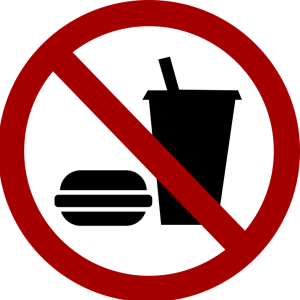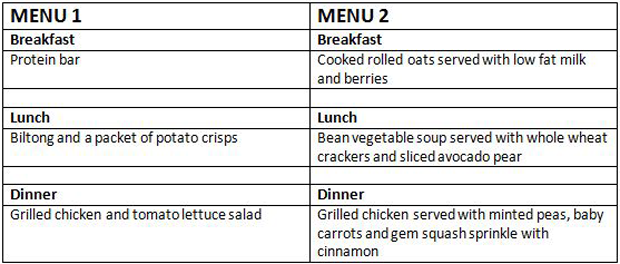
We often experience a strong craving for some kind of delectable food. This can happen any time during the day or night, but many of us find the time after dinner especially problematic.
While the reasons for cravings are complex, researchers have concluded that both physical and psychological factors influence why we find some foods irresistible at times and often want to snack after dinner.
Read: To snack or not to snack?
Physical factors
Foods high in sugar and flour result in disturbed appetite regulation
Our normal appetite involves a complex network of neurons, neurotransmitters, gut peptides and hormones which respond to the chemistry of food in our gastrointestinal tract and affect the hunger and appetite centres in our brain. This mechanism is known as the homeostatic regulation of food intake.
Research shows that the consumption of high-sugar and refined foods may override the brain centres that regulate reward-related cognition and pleasure. This regulation involves centres in the limbic system, called the hedonic pathway of food. Neurotransmitters such as opioids and dopamine are mobilised and behave in a very similar way to drugs.
Read: Weak-willed or too much dopamine?
Not eating enough during the day can result in low blood glucose levels
The skipping of meals, grabbing snacks on the run, eating while shopping and driving all contribute to our blood glucose levels dropping too low. This consequent feeling of hunger overrides our will power and we find ourselves eating too much of the wrong foods between meals.Enjoying nutritionally balanced meals helps to stabilise blood glucose levels and limits the feelings of hunger and cravings between meals and at night.
Menu 1 illustrates the wrong menu composition, while Menu 2 demonstrates the correct way.

Not getting an adequate amount of sleep
Many of us suffer from too little and/or interrupted sleep. The feeling of tiredness can cause us to crave certain foods as we crave the energy to get us through the afternoon and evening. Research shows that in recent decades our average sleep has decrease by up to two hours due to artificial lighting, watching TV and using electronic devices. Sleep deprivation also disrupts the hormones that control appetite. It contributes to an increase in ghrelin (a hormone that increases appetite) and a decrease in leptin (a hormone that suppresses appetite).
Read: Leptin - the answer to obesity?
Psychological factors
Our 'state of mind' expectations that become habits
Foods high in sugars and fats are tempting. They trigger our need for instant gratification. You might be perfectly fine until you go shopping and find yourself buying a chocolate while you are in line to pay. If you are used to crunchy potato crisps while watching sport on TV, or snacking while preparing for the big braai, your Saturday afternoon will not feel the same without the availability of these snacks. These expectations and habits we build around food can also cause cravings.
Emotions
Cravings can also be driven by experiencing uncomfortable emotions. These can be feelings of boredom, anxiety, aggravation, frustration, anger, upset or unhappiness. We can easily reach for crackers and cheese, believing that this will pep us up and help us to feel better. We might be bored at a wedding and against our better judgment attack the dessert buffet with a vengeance. We also use food as a “reward” and believe that at the end of a stressful busy day we deserve something “nice”.
Read: Beat stress eating
Stress
When we experience either work or emotional stress and feel overwhelmed, it is easy to reach to food in an attempt to feel more in control.
Ways to combat cravings
- Limit the visibility and availability of foods high in sugar, fat and flour in your immediate environment, both at home and work.
- Stop skipping meals and eating on the run. Enjoy three nutritionally balanced, well designed meals a day and give yourself time to enjoy them.
- Try to get adequate sleep by slowing down in the evenings and going to bed earlier.
- Stop rewarding yourself with food.
- Start or keep to a regular exercise regime. Regular physical activity also lifts your mood.
- Find alternative activities that will distract you from the kitchen and lift your mood without resorting to food.
- If you want to eat because you're tired, make yourself a cup of tea or have a sugar-free cold drink while taking a break.
- Create a healthy environment at home by going shopping with a list. Replace unhealthy foods with e.g. high-fibre low-sugar items that provide your body with valuable nutrients.
Healthy snacks
- A portion of fresh fruit
- A vegetable platter with Rosa tomatoes, gherkins, baby carrots and green flat pea pods, and mashed avocado or hummus for dipping
- High-fibre, low-fat crackers served with low fat spreads such as low-fat hummus, low-fat smooth cottage cheese, olive tapenade, a variety of nut butters and peanut butter
- 4 pieces of dried fruit
- A 25 g packet of lean biltong
- 1 dried-fruit bar
- A vegetable or fruit smoothie
- A 25 g packet of assorted nuts
- Plain yogurt served with a handful of berries
- 1 glass of low fat milk
Read more:




 Publications
Publications
 Partners
Partners














